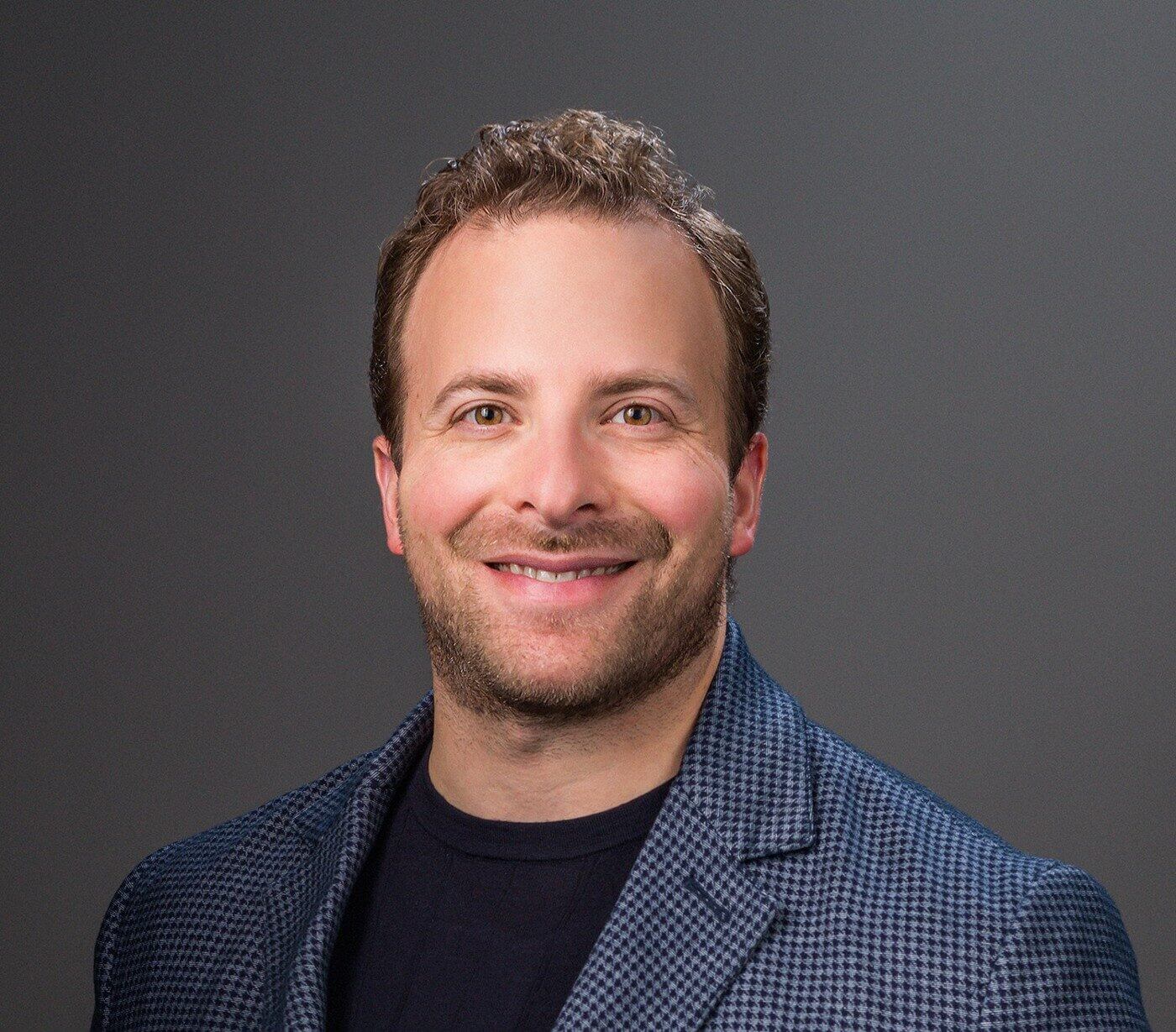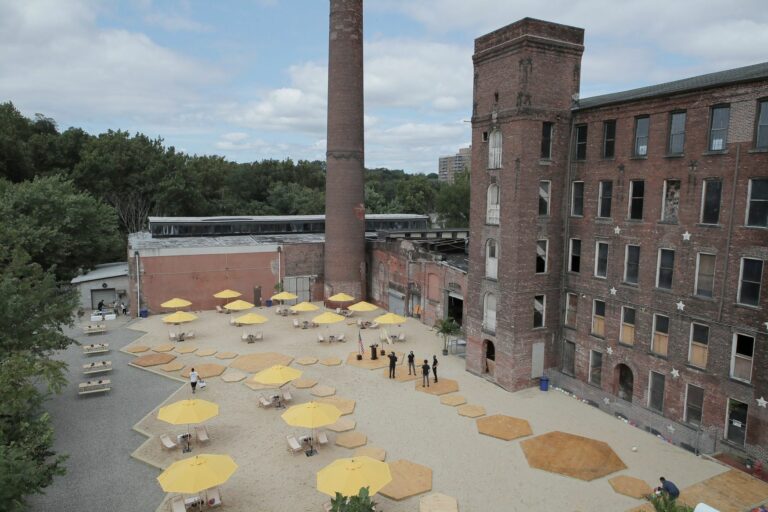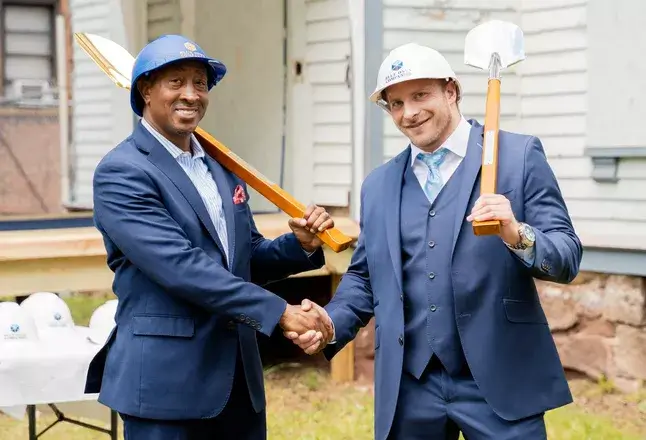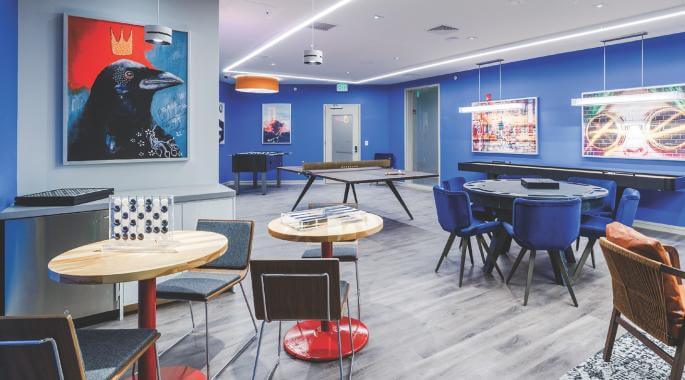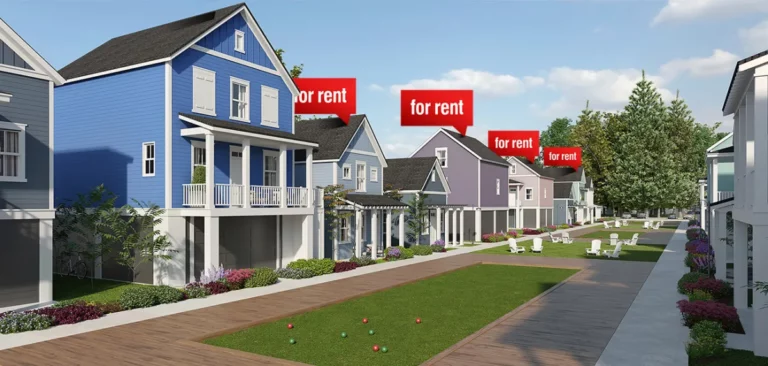Five Things Business Leaders Can Do To Create A Fantastic Work Culture
Never lose focus on team building: Every leader’s top priority should be on creating a team of professionals that can work collaboratively towards a common goal. As executives, it is our job to enable an organizational infrastructure that supports a strong, unified company mission. The ultimate sign of a successful business is when a leader can step away from operations, only to find things running smoothly and efficiently upon return.
Asa part of my series about about how leaders can create a “fantastic work culture”, I had the pleasure of interviewing Levi Kelman.
Levi Kelman is the CEO and founder of Blue Onyx Companies, a fully integrated real estate development, construction, leasing, and property management company. Since its inception in 2009, Levi has led the firm in growing a portfolio that includes a total asset value of nearly $100 million, with over 1 million square feet under management and a pipeline of over a half billion dollars in construction. Levi has a proven track record of success as an entrepreneur and leader in the real estate industry and brings a fresh vision to property management and development, leveraging his value system and ingraining himself in the communities where Blue Onyx operates.
Thank you so much for doing this with us! Can you tell us a story about what brought you to this specific career path?
Throughout my childhood, my parents always instilled in me the importance of giving back and helping others. They were avid proponents of the power of community, which has undeniably shaped my goals and the values that guided my career path. I see great opportunities to serve the community through real estate, and this ambition paired with my entrepreneurial spirit is what led me to found Blue Onyx.
Can you share the most interesting story that happened to you since you began leading your company?
I think the most interesting story may actually be how I began leading my company. The truth is, I never set out to be a developer. In fact, it wasn’t until I was a few years into buying properties that I realized the legitimate career I was building for myself in real estate.
I purchased a property (18 Summit) with the intention of doing a complete renovation, and the gentleman who I purchased the property from informed me that I needed to retain a lawyer and attend a planning board meeting. At that meeting, my lawyer listed off expert witnesses who would be speaking, all seemingly accounted for in the courtroom — with the exception of an expert developer who had been mentioned. Following a confused purvey of the room, I realized that I was in fact the “expert developer” in question — despite never having attached so formal a title to the work I was doing.
In that moment, I truly realized that over the course of years pursuing strategic investment in individual properties, I had established the blueprint for the organization that is now Blue Onyx Companies.
Are you working on any exciting projects now? How do you think that will help people?
Over the past year at Blue Onyx, we have strategically shifted our focus to concentrate on larger-scale projects throughout the New Jersey and New York metropolitan areas. There are extreme housing-shortages throughout communities in these regions, so our focus is on creating high-quality housing that drives positive social and economic impact in the area. In line with this, one note-worthy development in our pipeline is 24+Half in Paterson, NJ. Formerly the site of the Paterson Mill, our objective is to transform this property into a vibrant, mixed-use community by developing the seven former mills and warehouses into a work-live-play environment and community hub. The goal of this development is to improve the everyday quality of life for building and neighborhood residents, while also establishing a catalyst for renewal within the historic neighborhood in a way that both celebrates Paterson’s entrepreneurial past and looks toward a more sustainable future.
Ok, let’s jump to the main part of our interview. According to this study cited in Forbes, more than half of the US workforce is unhappy. Why do you think that number is so high?
I believe that so much of the US workforce is unhappy because they don’t find meaning in their work, and therefore end up unfulfilled in their careers. Leaders must invest in their teams, culture, corporate environment, and — above all else — they must offer employees the opportunity to pursue work they can be passionate about. This has been increasingly important in our COVID-laden times where people are more frequently assessing their lives and how they spend their time each day.
At Blue Onyx, we center our mission around “profit with a purpose.” This means that, while we are of course working toward increased profitability, we are also genuinely dedicated to making a positive impact through our work. This approach allows our team to come in each day with a feeling of purpose, which fosters high morale and an inspired work environment. When leadership is transparent, candid, and communicative, employees can find greater value in their role within the organization and ultimately, achieve more happiness through their work. We find that this mindset even benefits our work with partners and external stakeholders, who value the collaborative and open environment we’ve created.
Based on your experience or research, how do you think an unhappy workforce will impact a) company productivity b) company profitability c) and employee health and wellbeing?
Your team is what keeps the company moving at every level, and a work environment that does not prioritize employee happiness and wellbeing is not prioritizing company success. Business is all about people — if you are not treating your employees well, communicating with them openly and transparently, and listening when they voice concerns, your workforce falls prey to increased turnover, bad morale, and uninspired workers who are not realizing their full potential. Leaders must empower employees and understand that undervaluing and overworking their teams jeopardizes employees’ mental and physical health — two things that should never be compromised.
And from a corporate perspective, a poor work environment can absolutely cause a chain reaction of unproductivity that generates a negative impact on the company’s financial success and profitability. When employees are unhappy, the work environment lends itself to a culture where people aren’t inspired to give their all, which ultimately ends in consumer dissatisfaction. Success reinforces success, so it is important to foster a strong environment that in turn produces better results.
Can you share 5 things that managers and executives should be doing to improve their company work culture? Can you give a personal story or example for each?
A positive company work culture starts with a strong, trusted, and perceptive leader. Five of the most important things executives should do in order to cultivate a culture of acceptance and productivity among their teams are:
Promote diverse thinking: Early in my career, I made the mistake of trying to shoehorn team members into adapting my particular way of working. Once I accepted that everyone thinks and works differently, I was able to strengthen my team by connecting colleagues and assigning tasks in a way that emphasizes their strengths and balances their weaknesses.
Give everybody not just a seat, but a voice at the table: If you prioritize diverse talents, skills, and backgrounds when building a team, your organization will inherently remain diverse as a reflection of this. Where you must take a more active role is ensuring that everyone’s voices are heard, from the C-Suite down throughout the entire company. At Blue Onyx, we apply this philosophy to all aspects of our business, making sure we are thoughtful in our internal approach and when partnering with vendors and suppliers.
Embrace flexibility and transparency: As I mentioned previously, the pandemic has allowed us greater flexibility with remote work and the utilization of technology. A productive work culture is one that allows employees to do their work in the way that suits them best, allowing for a healthy work/life balance while promoting conditions that support productivity and innovation. Further, a collaborative and innovative workforce is best supported by a transparent and communicative work culture where employees receive the proper feedback and insight to produce top-tier results.
Encourage innovation: Fostering a work culture that encourages and rewards innovative thinking demonstrates to employees that their insights and opinions are welcomed, and also that a forward-thinking next-gen perspective is applauded.
Never lose focus on team building: Every leader’s top priority should be on creating a team of professionals that can work collaboratively towards a common goal. As executives, it is our job to enable an organizational infrastructure that supports a strong, unified company mission. The ultimate sign of a successful business is when a leader can step away from operations, only to find things running smoothly and efficiently upon return.
It’s very nice to suggest ideas, but it seems like we have to “change the culture regarding work culture”. What can we do as a society to make a broader change in the US workforce’s work culture?
I think the best way to improve US work culture across the board is for employers and executives to listen more. Companies must embrace the voices of all stakeholders, including individuals who historically have been neglected or who have not had a say in creating company culture. Listen to employees’ concerns and requests, listen to leaders who are driving a happy and thriving workforce — and whenever you see an opportunity for constructive feedback, take it. Then, once you’re done listening, go to work strategically assessing and eventually implementing changes accordingly. That last bit is important — execute. To make a wide and lasting impact, we must set the standard and lead by example.
How would you describe your leadership or management style? Can you give us a few examples?
When it comes to leadership and management, my focus is on building a strong and connected team that can work seamlessly toward aligned goals and results. The method for executing this style is by openly and consistently keeping our team updated and in agreement with high-level organizational and project goals, while encouraging the kind of diverse thinking and problem-solving that empowers each individual member of the team to produce their best work.
And on a more personal level, I strive to be vulnerable, empathetic, and constantly seek out knowledge that will assist me in becoming a better leader and mentor for my team. This includes having a board of trusted, seasoned professionals to turn to for advice and guidance
None of us are able to achieve success without some help along the way. Is there a particular person who you are grateful towards who helped get you to where you are? Can you share a story about that?
There have been so many important people that have mentored and guided me in my career — too many to mention one in specific. Throughout the different phases of Blue Onyx, I have been lucky to partner and align myself with knowledgeable advisors who helped me and the company grow.
Confident and successful leaders relish the opportunity to advise and give back, and what my mentors have provided me with — in addition to professional advice and guidance — is a real appreciation for continuous growth and learning.
How have you used your success to bring goodness to the world?
I find that I can easily bring goodness to the world through my work at Blue Onyx because the company was founded in (with?) good intentions. Since the firm’s inception, it has always been a goal to of ours to make a meaningful difference in communities that have not received the attention they deserve and the residents who inhabit them.
There is great responsibility and opportunity within the commercial real estate space to develop projects and facilities that benefit communities and do well by doing good. As property owners, operators, and builders, we must move beyond a hyper-focus on profit, instead looking at the triple bottom line to deliver developments that serve the planet and society at-large, as well. At Blue Onyx, we recognize a chance to establish resources that improve the quality of life for residents, employees, and the surrounding neighborhoods. That is why we seek to identify underutilized areas and work alongside the community and local municipalities to develop and manage value-add properties that reinvigorate the surrounding community and its economy. And by taking a vertically integrated approach to development and property management, we have the unique ability to consistently ensure that we are delivering the best results to all stakeholders at every stage of a project. As the old adage goes, “A rising tide lifts all boats.”
Can you please give us your favorite “Life Lesson Quote”? Can you share how that was relevant to you in your life?
One of my favorite life lesson quotes is, “I am the master of my fate; I am the captain of my soul.”
This quote directly relates to some of my and Blue Onyx’s core values: control your destiny and take no opportunity for granted. In life, we have a responsibility to make the choices that we believe are right and to own those choices. When you look at life through this lens of gratitude and opportunity, you have a real chance to make an impact through meaningful choices. At Blue Onyx, this means undertaking projects that have a positive impact on the communities we develop in, reinforcing a social safety net for the area’s residents.
You are a person of great influence. If you could inspire a movement that would bring the most amount of good to the most amount of people, what would that be? You never know what your idea can trigger. 🙂
I’d like to inspire a movement of transparency and accountability across the real estate sector. Leaders in the industry should be held accountable to the communities they work within, which means building anchors for communities, not islands. I’d like to revolutionize the real estate industry so that the players involved in all stages of development, from planning through management, are driven by a desire to pursue projects that are catalysts of economic improvement and improved quality of life for the surrounding region and its residents.
Thank you for these fantastic insights. We wish you continued success!
